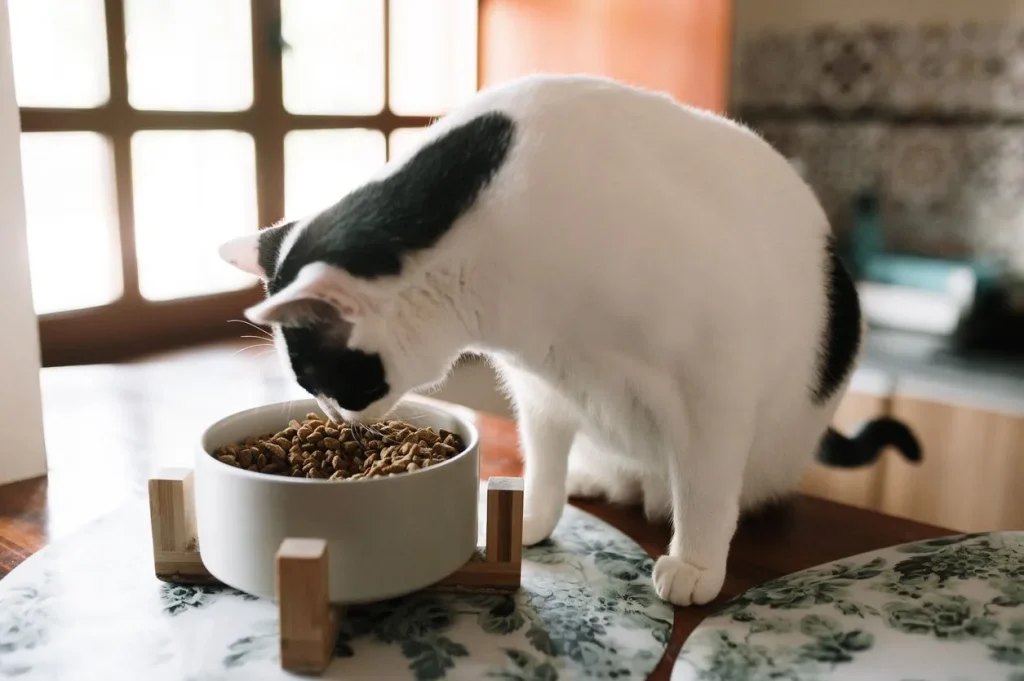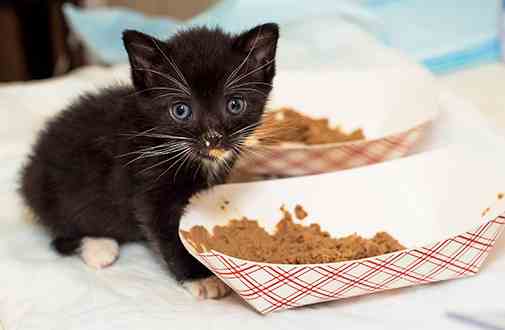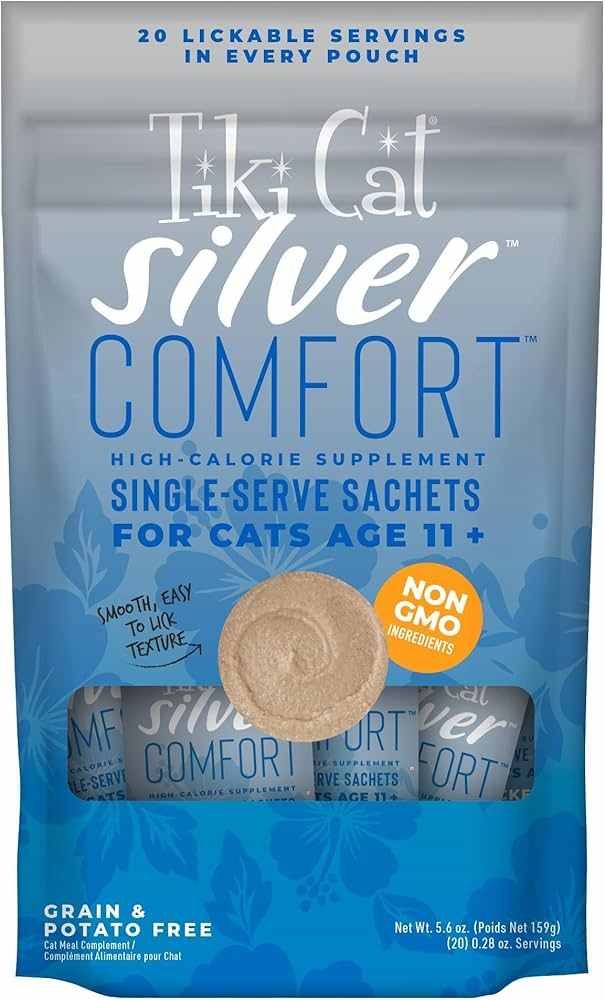Contents
Senior Cat Care
As your feline friend grows older, their health and comfort become even more important. Proper nutrition, the right supplements, and creating a cozy environment can make a big difference. Just like people, senior cats can face health issues such as arthritis, dental problems, and changes in appetite. By understanding their needs, you can help them live a happy and comfortable life. In this guide, we will explore the best ways to care for your senior cat. From choosing the right foods to finding the best supplements, you’ll discover tips to keep your furry companion feeling their best.

Recognizing Aging Signs
As cats age, their needs and behaviors change. Recognizing these aging signs helps ensure your senior cat gets the best care. Understanding these changes can improve your cat’s quality of life.
Behavior Changes
Older cats may become more withdrawn. They might sleep more and play less. You may notice increased vocalization. Some cats may become more clingy or seek more attention. Watch for any sudden changes in their routine. These can indicate discomfort or health issues.
Physical Symptoms
Physical symptoms of aging in cats include weight loss or gain. You might notice a dull coat. Joint stiffness and slower movements are common. Pay attention to changes in appetite. Dental issues can cause difficulty eating. Vision and hearing loss are also signs of aging.

Nutritional Needs
As cats age, their nutritional needs change. Senior cats need a balanced diet to support their health. This includes specific nutrients and a proper feeding schedule. Understanding these needs can help keep your older cat healthy and comfortable.
Essential Nutrients
Older cats need a diet rich in protein. High-quality protein helps maintain muscle mass. Choose foods with real meat as the first ingredient. Avoid fillers like corn and soy. Senior cats also need more fiber. Fiber aids digestion and prevents constipation. Look for foods with added fiber from vegetables and grains. Omega-3 fatty acids are also important. They support joint health and reduce inflammation. Vitamins and minerals are crucial. Vitamin E and beta-carotene boost the immune system. Calcium and phosphorus support bone health. Taurine is essential for heart and eye health. Ensure your cat’s food includes these nutrients.
Feeding Frequency
Older cats benefit from smaller, more frequent meals. This helps with digestion and nutrient absorption. Aim for three to four meals a day. Monitor their weight. Adjust portion sizes if your cat gains or loses weight. Avoid free-feeding. It can lead to overeating and obesity. Instead, stick to a regular feeding schedule. Hydration is also key. Older cats often drink less water. Wet food can help increase their water intake. Consider adding water to their dry food. Always provide fresh water.
Best Supplements
As your cat ages, their nutritional needs change. Supplements can help improve their quality of life. Choosing the right supplements supports their health and well-being. Here, we discuss the best supplements for senior cats.
Joint Health
Older cats often suffer from joint issues. Glucosamine and chondroitin can help. These supplements support joint health and mobility. They reduce inflammation and pain. Omega-3 fatty acids are also beneficial. They promote healthy joints and reduce stiffness.
Immune Support
A strong immune system is crucial for senior cats. Vitamins C and E boost their immune response. Probiotics are another great option. They improve gut health and overall immunity. Colostrum supplements also enhance immune function. They provide antibodies and support overall health.

Hydration Importance
As cats grow older, their bodies change, affecting their hydration needs. Keeping senior cats properly hydrated is essential for their overall health. Dehydration can lead to serious health issues, including kidney disease and urinary tract infections. Ensuring your senior cat drinks enough water is a crucial part of their care routine.
Water Intake
Older cats may not feel as thirsty as younger ones. They might also have trouble accessing their water bowls. To encourage water intake, place multiple water bowls around the house. Make sure the bowls are clean and filled with fresh water daily. Consider using water fountains. Cats are naturally attracted to running water. Water fountains can stimulate their interest and increase their water consumption. Additionally, adding a few ice cubes to the water can make it more appealing.
Wet Food Benefits
Switching to wet food can significantly improve your senior cat’s hydration. Wet food contains higher moisture content compared to dry kibble. This helps to keep your cat hydrated and supports their kidney health. Here are some benefits of wet food for senior cats:
- Higher moisture content: Ensures better hydration.
- Easier to chew: Beneficial for cats with dental issues.
- More palatable: Encourages picky eaters to consume more.
Consider mixing wet food with dry kibble. This combination can provide a balanced diet while ensuring your cat gets enough moisture. Always consult your vet before making any significant changes to your cat’s diet.
Comfortable Environment
Creating a comfortable environment for older cats is essential for their well-being. Senior cats need cozy, safe spaces to rest and explore. This ensures they feel secure and happy. Let’s explore how to make your home more comfortable for your senior cat.
Cozy Sleeping Areas
Senior cats sleep more than younger cats. They need soft, warm places to rest. Provide beds with soft cushions. Place them in quiet, draft-free areas. Raised beds can help cats with arthritis. Heated beds are great for soothing old joints. Ensure easy access to their favorite spots.
Safe Exploration
Older cats still enjoy exploring. Make sure they can do so safely. Remove any hazards they might trip over. Install ramps or steps for easier access to high places. Ensure litter boxes, food, and water are easy to reach. Keep their environment predictable and familiar. This reduces stress and promotes confidence.
Routine Veterinary Visits
Routine veterinary visits are crucial for maintaining the health of older cats. As cats age, they become more prone to health issues. Regular check-ups ensure any potential problems are caught early. This proactive approach can extend your cat’s life and improve their quality of life.
Health Check-ups
Health check-ups help monitor your cat’s overall condition. Veterinarians will examine your cat’s weight, teeth, and coat. They may also check for signs of arthritis, kidney disease, or diabetes. Early detection can make treatment more effective. A thorough exam includes blood tests and urine analysis. These tests reveal hidden health problems.
Vaccinations
Vaccinations are essential even for senior cats. They protect against common diseases. Older cats can have weaker immune systems. Keeping their vaccinations up-to-date can prevent illnesses. Your vet will advise which vaccines are necessary. This depends on your cat’s lifestyle and health status. Regular booster shots are often required.
Grooming Tips
Grooming is crucial for your senior cat’s health and comfort. Regular grooming helps reduce shedding, prevent matting, and keeps your cat’s coat shiny. It also allows you to check for any skin issues or lumps that need attention. Here are some useful grooming tips specifically for older cats.
Brushing Techniques
Older cats often have difficulty grooming themselves. Their flexibility decreases with age. Therefore, regular brushing is essential. Use a soft-bristled brush. Gently brush in the direction of hair growth. This helps remove loose fur and reduces shedding. For long-haired cats, use a wide-toothed comb. This prevents tangles and matting. Short-haired cats benefit from a rubber grooming mitt. It helps distribute natural oils across their coat.
Skin Care
Senior cats may develop skin issues. Dry skin, dandruff, or even sores can appear. Regular grooming helps spot these early. Use a moisturizing spray or pet-safe wipes. These keep the skin hydrated and reduce irritation. If you notice any redness or lumps, consult your vet. Proper nutrition also plays a role in skin health. Ensure your cat’s diet includes omega-3 and omega-6 fatty acids. These nutrients support a healthy coat and skin.
Mental Stimulation
As cats age, their needs change. Mental stimulation becomes crucial for their well-being. Keeping their minds active helps prevent cognitive decline. Older cats benefit from engaging activities and interactive toys. These not only entertain but also challenge their minds.
Interactive Toys
Interactive toys are a great way to keep senior cats engaged. Puzzle feeders and treat-dispensing toys encourage problem-solving. These toys make them think and work for their food. Wand toys are also excellent. They mimic the movement of prey, triggering their hunting instincts. Laser pointers provide fun chase sessions. They stimulate both body and mind.
Engaging Activities
Engaging activities keep older cats mentally sharp. Hide and seek is a simple game. Hide treats around the house and let them find them. It encourages their sense of smell and curiosity. Training sessions can also be beneficial. Teach them simple tricks or commands. It keeps their brains active and strengthens your bond. Another engaging activity is interactive playtime. Spend a few minutes each day playing with your cat. Use different toys to keep things interesting. Rotate toys to prevent boredom. A varied play routine stimulates their mind and keeps them happy.
Frequently Asked Questions
What Supplements Are Best For Senior Cats?
Senior cats benefit from glucosamine for joints, omega-3 for inflammation, and probiotics for digestion. Consult your vet before starting any supplement.
How Do I Improve My Senior Cat’s Nutrition?
Feed senior cats high-protein, low-fat diets with balanced minerals. Choose foods designed specifically for older cats. Always provide fresh water.
How Can I Make My Senior Cat Comfortable?
Provide soft, warm bedding, easy-access litter boxes, and gentle grooming. Maintain a calm environment and regular vet check-ups to ensure their comfort.
Why Do Senior Cats Need Special Care?
Senior cats experience aging issues like arthritis, kidney disease, and dental problems. Special care ensures their health and comfort in later years.
Caring for your senior cat involves careful attention. Provide the right supplements. Ensure a balanced diet. Keep them comfortable with a cozy space. Regular vet check-ups are vital. Stay observant of their needs and changes. Offer love and patience. Your older cat deserves the best care. They rely on you for a happy, healthy life.
